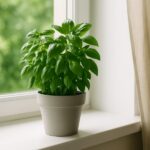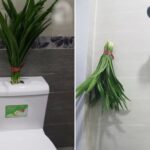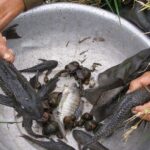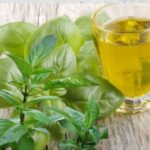Flies are more than just a nuisance; they pose a serious threat to food hygiene and safety. They are commonly attracted to food, garbage, and fragrant scents. Instead of resorting to harmful chemicals, there are natural, simple, and highly effective ways to keep flies away from your home.
1. Smart Use of Water Bags
One clever trick to repel flies, often used by market vendors, is to hang a bag of water in front of their stalls. It may sound unbelievable, but its effectiveness has been proven time and again.
All you need is a clean plastic bag (transparent), filled with purified water to about two-thirds of its capacity. Securely tie the bag closed and hang it near windows, in the kitchen, or close to food displays. When light reflects off the water bag, it creates a prism effect, disorienting flies with its intense brightness and keeping them at bay.
Interestingly, ordinary purified water will do the trick. The newer and cleaner the bag, the stronger the prism effect, and the more effective it is at repelling flies.
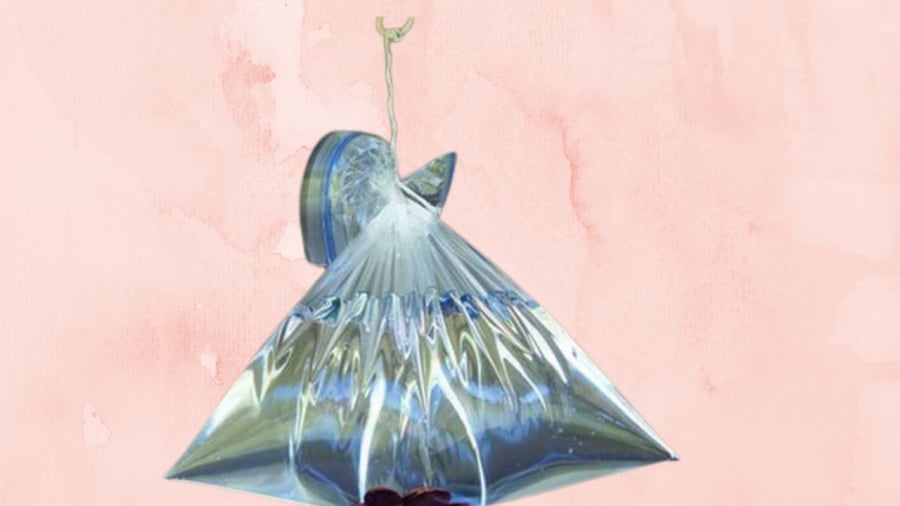
2. Fragrant Basil Leaves
The scent of basil leaves is a natural repellent to flies. Simply crush a few leaves and place them near food or plant a small pot near windows to keep flies away. Basil essential oil can also be sprayed around the house for added effectiveness.
3. Citrus and Cloves: A Fragrant Combo
Cut a fresh lemon or lime in half and insert a few dried cloves into it. Place this near windows, on the dining table, or in the kitchen—wherever flies tend to gather. The combination of citrus and clove scents is unappealing to flies, encouraging them to buzz off.
4. Citrus Peels: Nature’s Air Freshener
The essential oils found in citrus peels, such as oranges, mandarins, or grapefruits, have a pleasant scent for humans but are abhorrent to flies. You can dry and place the peels near fly-infested areas or boil the peels to release their fragrance throughout your home. Alternatively, pop some peels in the microwave for 30 seconds to fill your space with a refreshing scent.

5. Lemongrass: A Multi-Purpose Repellent
Lemongrass is easily accessible and can be used to repel both flies and mosquitoes. Crush a few lemongrass stalks and place them near fly hotspots. The natural fragrance of lemongrass will instantly deter flies.
6. Lavender: A Modern Fragrance with Ancient Benefits
Grow lavender indoors or hang lavender-filled sachets in your kitchen or near windows. The calming scent of lavender not only relaxes you but also acts as a natural fly repellent.
7. Mint: A Refreshing Repellent
Flies are particularly sensitive to the scent of mint. Use fresh or dried mint leaves, crush them slightly to release their aroma, and place them in fly-prone areas. Mint essential oil can also be used to mop floors, wipe surfaces, or diluted for spraying.
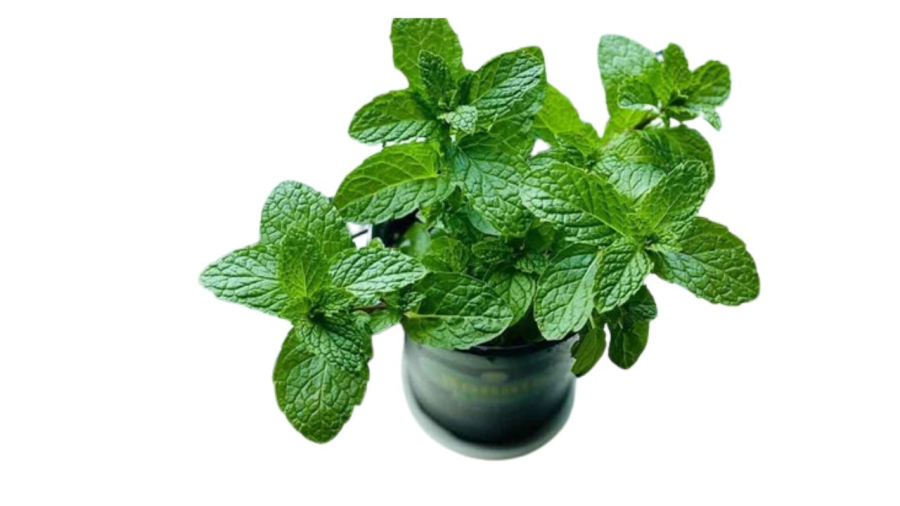
8. Essential Oils: A Natural Approach
Essential oils such as peppermint, eucalyptus, and tea tree, commonly found in vapor rubs, are all scents that flies detest. Put a few drops of vapor rub on a tissue and leave it near food or on the dining table. Alternatively, dilute the vapor rub with water for spraying or use it in an oil diffuser.
9. Dried Cloves: A Versatile Repellent
In addition to using cloves with citrus, you can create sachets filled with dried cloves and place them in your kitchen or dining area. Clove-infused water can be used for mopping or spraying on surfaces, effectively cleaning and repelling flies.
Remember, the best way to minimize fly infestations is to maintain good hygiene. Keep your home clean, ensure no leftover food or garbage is left unattended, and always cover your food. By removing the attractants, you’ll significantly reduce the number of flies entering your home.
4 ‘Air Purifiers’ That Are Easy to Grow at Home: The Secret to a Fresh Living Space
Many people grow plants purely for aesthetic purposes, but what some may not realize is that common household plants such as basil, lemongrass, and mint possess a hidden superpower. These humble herbs are not just a feast for the eyes, but they also possess the extraordinary ability to purify the air, ward off pests, and create a soothing living environment, offering a natural therapeutic experience.
























